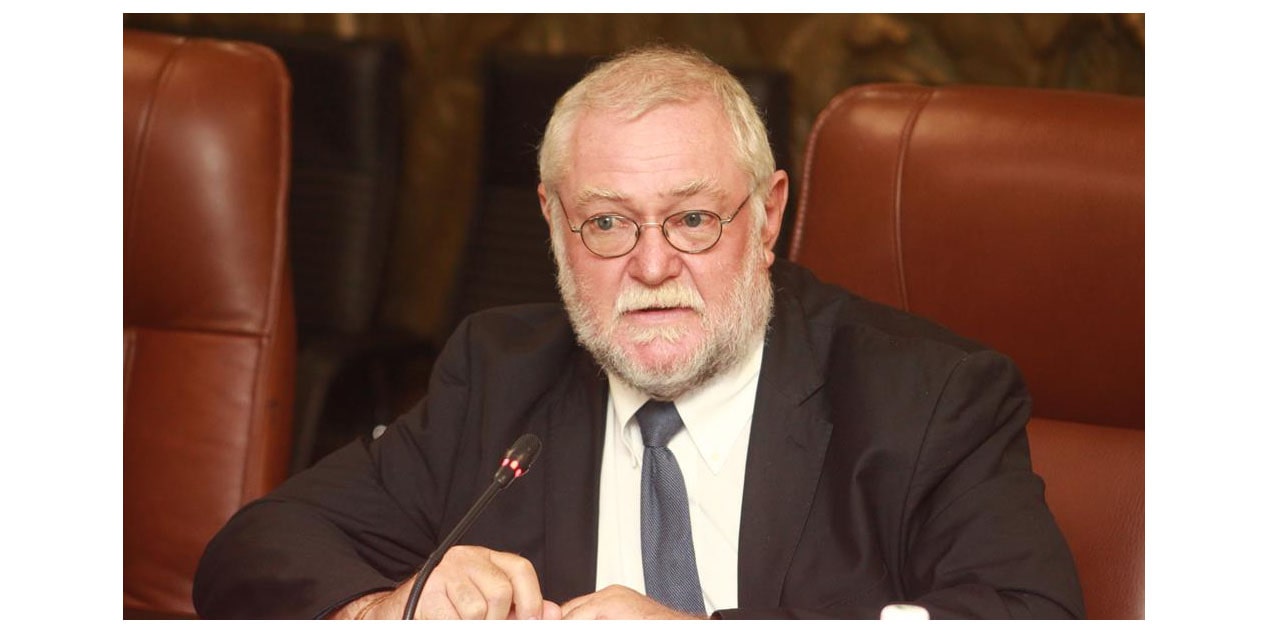Tujoromajo Kasuto
Minister of Agriculture, Water, and Land Reform, has slammed the prospecting for uranium in Aminuis in the Omaheke Region, where people rely heavily on underground water for survival, claiming that mining in an aquifer is potentially harmful and that it would be irresponsible to allow such potential pollution and destruction of such a valuable water resource in an otherwise dry country.
Carl Schlettwein made the statement in response to the drilling of boreholes in the area by Headspring Investments’ Project Wings, a subsidiary of Uranium One, which is part of Rosatom, a Russian state-owned uranium exploration, mining, and processing company.
“I believe that any mining in an aquifer is potentially harmful. In this case they want to mine and discharge the effluent (sulfuric acid) into the Stampriet artesian aquifer on which the whole central-eastern farming community is depending. I think it would be irresponsible to allow such potential pollution and destruction of such a valuable water resource in an otherwise dry country,” explained Schlettwein.
Furthermore, Schlettwein stated that the same company had their water licence revoked because they did not comply with the regulations of their water permit, which required them to report back and conduct inspections, which they did not do.
“They are still at the exploration stage and we got worried when they were not compliant with the permit conditions that pose on the permits for ground water and that is where we are and from there on we did not proceed with issuing more permits until such time that we have concrete evidence that correct measures were implemented or evidence of wrongdoing,” he said
The minister noted that the exploration started at least two years back, if not longer.
He adds that currently they have not looked into the mining aspect as the mandate only overseas that the water reserve is not harmed.
“We have from our book studies, the fear that they do contaminate and can be leakage, so ensure that that does not happen. We are not concerned with whether the mining part is profitable or not, as we believe that the underground aquifer is our most valuable resource and needs to be protected,” he said.
This comes after livestock farmers and residents in Aminuis were outraged by the prospect of uranium mining in the area, claiming that “these environmentally disastrous mining activities” would cause irreversible damage to groundwater quality, endangering their livelihoods and the livelihoods of future generations.
The farmers contended that the boreholes were drilled in the constituency’s Okahiokaapa and Omurambauondjombo villages, and that the chemicals used could have serious environmental consequences as well as long-term and potentially irreversible changes to groundwater quality.
They state that Headway Investments’ and its partners’ ISL uranium mining activities in the Constituency or elsewhere should be stopped because they are not sustainable and pose a significant environmental risk and pollution burden on current and future users of groundwater, which should be protected at all costs.
Against this backdrop, and with uranium being a highly toxic mineral, farmers and community members are opposing mining activities that may be environmentally disastrous and harm their livelihood and that of future generations.
‘’We were not properly informed what these mining activities were all about, officials from Headspring Investments only told us that they are prospecting for minerals,’’ says one resident from Okahiokaapa Village.




